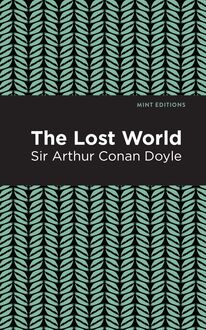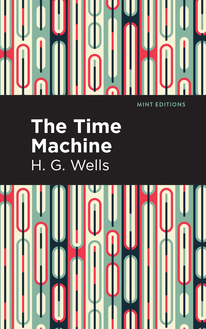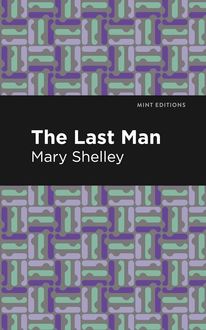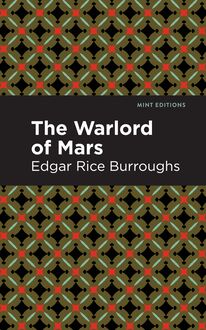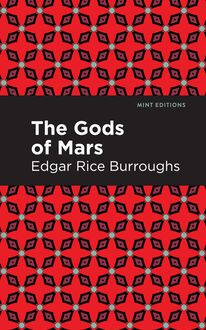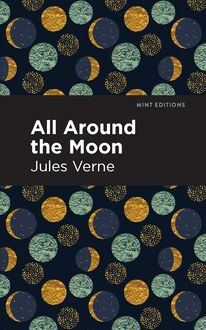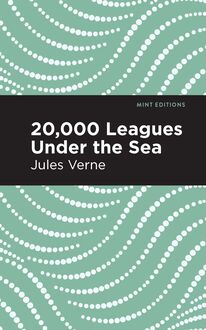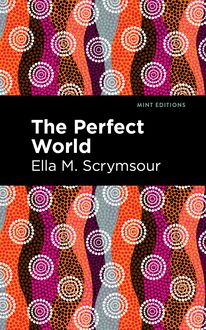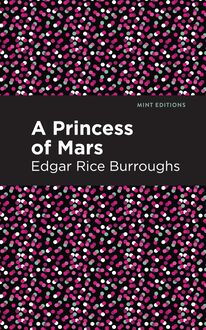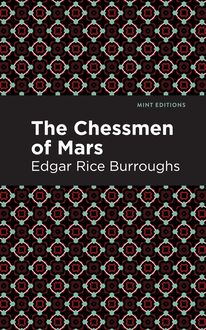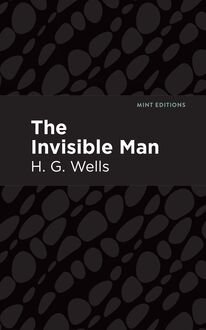-
 Univers
Univers
-
 Ebooks
Ebooks
-
 Livres audio
Livres audio
-
 Presse
Presse
-
 Podcasts
Podcasts
-
 BD
BD
-
 Documents
Documents
-
- Cours
- Révisions
- Ressources pédagogiques
- Sciences de l’éducation
- Manuels scolaires
- Langues
- Travaux de classe
- Annales de BEP
- Etudes supérieures
- Maternelle et primaire
- Fiches de lecture
- Orientation scolaire
- Méthodologie
- Corrigés de devoir
- Annales d’examens et concours
- Annales du bac
- Annales du brevet
- Rapports de stage
La lecture à portée de main
Vous pourrez modifier la taille du texte de cet ouvrage
Découvre YouScribe en t'inscrivant gratuitement
Je m'inscrisDécouvre YouScribe en t'inscrivant gratuitement
Je m'inscrisEn savoir plus
Vous pourrez modifier la taille du texte de cet ouvrage
En savoir plus

Description
As one of the many installments in Jules Verne’s Voyage Extraordinaire series, Journey to the Center of the Earth promises high stakes and thrilling adventure. When Professor Otto Lidenbrock bought an ancient runic manuscript, which chronicles the lives of Norwegian Kings, he did not expect to learn of anything but the history of Icelandic leaders. However, upon further inspection, Lidenbrock and his nephew, Axel, find that the manuscript includes a coded message written by a 16th century alchemist. After rigorous translating and decoding, Axel and Lidenbrock discover the content of the note, in which the author reveals that it is possible to travel to the center of the Earth through volcanic passages. When Lidenbrock heard the news, he immediately started preparations to start the journey, though Axel was skeptical. When Lidenbrock’s will proves to be more powerful than his nephew’s doubt, the two decide to make the journey, recruiting an Icelandic tour guide named Hans on the way. As the three men make their way to inactive volcanic tubes, they embark on a high-stake adventure, facing dangers of cave-ins, subpolar tornados, an underground ocean and prehistoric creatures. The three men stay strong in their adventure, knowing the risky journey promises superior knowledge and acclaim, granted that they make it out alive.
With the combination of science fiction and the adventure genre, Jules Verne created a novel that captures the attention of his audience. Originally published in 1864, Journey to the Center of the Earth still provides modern readers with entertainment and insight with its detailed and imaginative prose. Journey to the Center of the Earth can be read independently or as a companion to the other titles of Jules Verne’s critically acclaimed series, Voyage Extraordinaire.
This edition of Journey to the Center of the Earth by Jules Verne now features an eye-catching cover design and is printed in a stylish and readable font, crafting an assessible and pleasant reading experience for modern audiences.
Sujets
Informations
| Publié par | Mint Editions |
| Date de parution | 26 janvier 2021 |
| Nombre de lectures | 16 |
| EAN13 | 9781513275437 |
| Langue | English |
| Poids de l'ouvrage | 3 Mo |
Informations légales : prix de location à la page 0,0500€. Cette information est donnée uniquement à titre indicatif conformément à la législation en vigueur.
Extrait
Journey to the Center of the Earth
Jules Verne
Journey to the Center of the Earth was first published in 1871.
This edition published by Mint Editions 2021.
ISBN 9781513270432 | E-ISBN 9781513275437
Published by Mint Editions®
minteditionbooks.com
Publishing Director: Jennifer Newens
Design & Production: Rachel Lopez Metzger
Translation: F. A. Malleson
Typesetting: Westchester Publishing Services
C ONTENTS I. T HE P ROFESSOR A ND H IS F AMILY II. A M YSTERY T O B E S OLVED A T A NY P RICE III. T HE R UNIC W RITING E XERCISES T HE P ROFESSOR IV. T HE E NEMY T O B E S TARVED I NTO S UBMISSION V. F AMINE , T HEN V ICTORY , F OLLOWED B Y D ISMAY VI. E XCITING D ISCUSSIONS A BOUT A N U NPARALLELED E NTERPRISE VII. A W OMAN ’ S C OURAGE VIII. S ERIOUS P REPARATIONS F OR V ERTICAL D ESCENT IX. I CELAND ! B UT W HAT N EXT ? X. I NTERESTING C ONVERSATIONS W ITH I CELANDIC S AVANTS XI. A G UIDE F OUND T O T HE C ENTRE O F T HE E ARTH XII. A B ARREN L AND XIII. H OSPITALITY U NDER T HE A RCTIC C IRCLE XIV. B UT A RCTICS C AN B E I NHOSPITABLE , T OO XV. S NÆFELL A T L AST XVI. B OLDLY D OWN T HE C RATER XVII. V ERTICAL D ESCENT XVIII. T HE W ONDERS O F T ERRESTRIAL D EPTHS XIX. G EOLOGICAL S TUDIES I N S ITU XX. T HE F IRST S IGNS O F D ISTRESS XXI. C OMPASSION F USES T HE P ROFESSOR ’ S H EART XXII. T OTAL F AILURE O F W ATER XXIII. W ATER D ISCOVERED XXIV. W ELL S AID , O LD M OLE ! C ANST T HOU W ORK I’ T HE G ROUND S O F AST ? XXV. D E P ROFUNDIS XXVI. T HE W ORST P ERIL O F A LL XXVII. L OST I N T HE B OWELS O F T HE E ARTH XXVIII. T HE R ESCUE I N T HE W HISPERING G ALLERY XXIX. T HALATTA ! T HALATTA ! XXX. A N EW M ARE I NTERNUM XXXI. P REPARATIONS F OR A V OYAGE O F D ISCOVERY XXXII. W ONDERS O F T HE D EEP XXXIII. A B ATTLE O F M ONSTERS XXXIV. T HE G REAT G EYSER XXXV. A N E LECTRIC S TORM XXXVI. C ALM P HILOSOPHIC D ISCUSSIONS XXXVII. T HE L IEDENBROCK M USEUM O F G EOLOGY XXXVIII. T HE P ROFESSOR I N H IS C HAIR A GAIN XXXIX. F OREST S CENERY I LLUMINATED B Y E LECTRICITY XL. P REPARATIONS F OR B LASTING A P ASSAGE T O T HE C ENTRE O F T HE E ARTH XLI. T HE G REAT E XPLOSION A ND T HE R USH D OWN B ELOW XLII. H EADLONG S PEED U PWARD T HROUGH T HE H ORRORS O F D ARKNESS XLIII. S HOT O UT O F A V OLCANO A T L AST ! XLIV. S UNNY L ANDS I N T HE B LUE M EDITERRANEAN XLV. A LL ’ S W ELL T HAT E NDS W ELL
I
T HE P ROFESSOR A ND H IS F AMILY
O n the 24th of May, 1863, my uncle, Professor Liedenbrock, rushed into his little house, No. 19 K ö nigstrasse, one of the oldest streets in the oldest portion of the city of Hamburg.
Martha must have concluded that she was very much behindhand, for the dinner had only just been put into the oven.
“Well, now,” said I to myself, “if that most impatient of men is hungry, what a disturbance he will make!”
“M. Liedenbrock so soon!” cried poor Martha in great alarm, half opening the dining-room door.
“Yes, Martha; but very likely the dinner is not half cooked, for it is not two yet. Saint Michael’s clock has only just struck half-past one.”
“Then why has the master come home so soon?”
“Perhaps he will tell us that himself.”
“Here he is, Monsieur Axel; I will run and hide myself while you argue with him.”
And Martha retreated in safety into her own dominions.
I was left alone. But how was it possible for a man of my undecided turn of mind to argue successfully with so irascible a person as the Professor? With this persuasion I was hurrying away to my own little retreat upstairs, when the street door creaked upon its hinges; heavy feet made the whole flight of stairs to shake; and the master of the house, passing rapidly through the dining-room, threw himself in haste into his own sanctum.
But on his rapid way he had found time to fling his hazel stick into a corner, his rough broadbrim upon the table, and these few emphatic words at his nephew:
“Axel, follow me!”
I had scarcely had time to move when the Professor was again shouting after me:
“What! not come yet?”
And I rushed into my redoubtable master’s study.
Otto Liedenbrock had no mischief in him, I willingly allow that; but unless he very considerably changes as he grows older, at the end he will be a most original character.
He was professor at the Johann æ um, and was delivering a series of lectures on mineralogy, in the course of every one of which he broke into a passion once or twice at least. Not at all that he was over-anxious about the improvement of his class, or about the degree of attention with which they listened to him, or the success which might eventually crown his labours. Such little matters of detail never troubled him much. His teaching was as the German philosophy calls it, ‘subjective’; it was to benefit himself, not others. He was a learned egotist. He was a well of science, and the pulleys worked uneasily when you wanted to draw anything out of it. In a word, he was a learned miser.
Germany has not a few professors of this sort.
To his misfortune, my uncle was not gifted with a sufficiently rapid utterance; not, to be sure, when he was talking at home, but certainly in his public delivery; this is a want much to be deplored in a speaker. The fact is, that during the course of his lectures at the Johann æ um, the Professor often came to a complete standstill; he fought with wilful words that refused to pass his struggling lips, such words as resist and distend the cheeks, and at last break out into the unasked-for shape of a round and most unscientific oath: then his fury would gradually abate.
Now in mineralogy there are many half-Greek and half-Latin terms, very hard to articulate, and which would be most trying to a poet’s measures. I don’t wish to say a word against so respectable a science, far be that from me. True, in the august presence of rhombohedral crystals, retinasphaltic resins, gehlenites, Fassaites, molybdenites, tungstates of manganese, and titanite of zirconium, why, the most facile of tongues may make a slip now and then.
It therefore happened that this venial fault of my uncle’s came to be pretty well understood in time, and an unfair advantage was taken of it; the students laid wait for him in dangerous places, and when he began to stumble, loud was the laughter, which is not in good taste, not even in Germans. And if there was always a full audience to honour the Liedenbrock courses, I should be sorry to conjecture how many came to make merry at my uncle’s expense.
Nevertheless my good uncle was a man of deep learning—a fact I am most anxious to assert and reassert. Sometimes he might irretrievably injure a specimen by his too great ardour in handling it; but still he united the genius of a true geologist with the keen eye of the mineralogist. Armed with his hammer, his steel pointer, his magnetic needles, his blowpipe, and his bottle of nitric acid, he was a powerful man of science. He would refer any mineral to its proper place among the six hundred 1 elementary substances now enumerated, by its fracture, its appearance, its hardness, its fusibility, its sonorousness, its smell, and its taste.
The name of Liedenbrock was honourably mentioned in colleges and learned societies. Humphry Davy, 2 Humboldt, Captain Sir John Franklin, General Sabine, never failed to call upon him on their way through Hamburg. Becquerel, Ebelman, Brewster, Dumas, Milne-Edwards, Saint-Claire-Deville frequently consulted him upon the most difficult problems in chemistry, a science which was indebted to him for considerable discoveries, for in 1853 there had appeared at Leipzig an imposing folio by Otto Liedenbrock, entitled, “A Treatise upon Transcendental Chemistry,” with plates; a work, however, which failed to cover its expenses.
To all these titles to honour let me add that my uncle was the curator of the museum of mineralogy formed by M. Struve, the Russian ambassador; a most valuable collection, the fame of which is European.
Such was the gentleman who addressed me in that impetuous manner. Fancy a tall, spare man, of an iron constitution, and with a fair complexion which took off a good ten years from the fifty he must own to. His restless eyes were in incessant motion behind his full-sized spectacles. His long, thin nose was like a knife blade. Boys have been heard to remark that that organ was magnetised and attracted iron filings. But this was merely a mischievous report; it had no attraction except for snuff, which it seemed to draw to itself in great quantities.
When I have added, to complete my portrait, that my uncle walked by mathematical strides of a yard and a half, and that in walking he kept his fists firmly closed, a sure sign of an irritable temperament, I think I shall have said enough to disenchant any one who should by mistake have coveted much of his company.
He lived in his own little house in K ö nigstrasse, a structure half brick and half wood, with a gable cut into steps; it looked upon one of those winding canals which intersect each other in the middle of the ancient quarter of Hamburg, and which the great fire of 1842 had fortunately spared.
It is true that the old house stood slightly off the perpendicular, and bulged out a little towards the street; its roof sloped a little to one side, like the cap over the left ear of a Tugendbund student; its lines wanted accuracy; but after all, it stood firm, thanks to an old elm which buttressed it in front, and which often in spring sent its young sprays through the window panes.
My uncle was tolerably well off for a German professor. The house was his own, and everything in it. The living contents were his god-daughter Gr ä uben, a young Virlandaise of seventeen, Martha, and myself. As his nephew and an orphan, I became his laboratory assistant.
I freely confess that I was exceedingly fond of geology and all its kindred sciences; the blood of a mineralogist was in my veins, and in the midst of my specimens I was always happy.
In a word, a man might live happily enough
-
 Univers
Univers
-
 Ebooks
Ebooks
-
 Livres audio
Livres audio
-
 Presse
Presse
-
 Podcasts
Podcasts
-
 BD
BD
-
 Documents
Documents
-
Jeunesse
-
Littérature
-
Ressources professionnelles
-
Santé et bien-être
-
Savoirs
-
Education
-
Loisirs et hobbies
-
Art, musique et cinéma
-
Actualité et débat de société
-
Jeunesse
-
Littérature
-
Ressources professionnelles
-
Santé et bien-être
-
Savoirs
-
Education
-
Loisirs et hobbies
-
Art, musique et cinéma
-
Actualité et débat de société
-
Actualités
-
Lifestyle
-
Presse jeunesse
-
Presse professionnelle
-
Pratique
-
Presse sportive
-
Presse internationale
-
Culture & Médias
-
Action et Aventures
-
Science-fiction et Fantasy
-
Société
-
Jeunesse
-
Littérature
-
Ressources professionnelles
-
Santé et bien-être
-
Savoirs
-
Education
-
Loisirs et hobbies
-
Art, musique et cinéma
-
Actualité et débat de société
- Cours
- Révisions
- Ressources pédagogiques
- Sciences de l’éducation
- Manuels scolaires
- Langues
- Travaux de classe
- Annales de BEP
- Etudes supérieures
- Maternelle et primaire
- Fiches de lecture
- Orientation scolaire
- Méthodologie
- Corrigés de devoir
- Annales d’examens et concours
- Annales du bac
- Annales du brevet
- Rapports de stage
